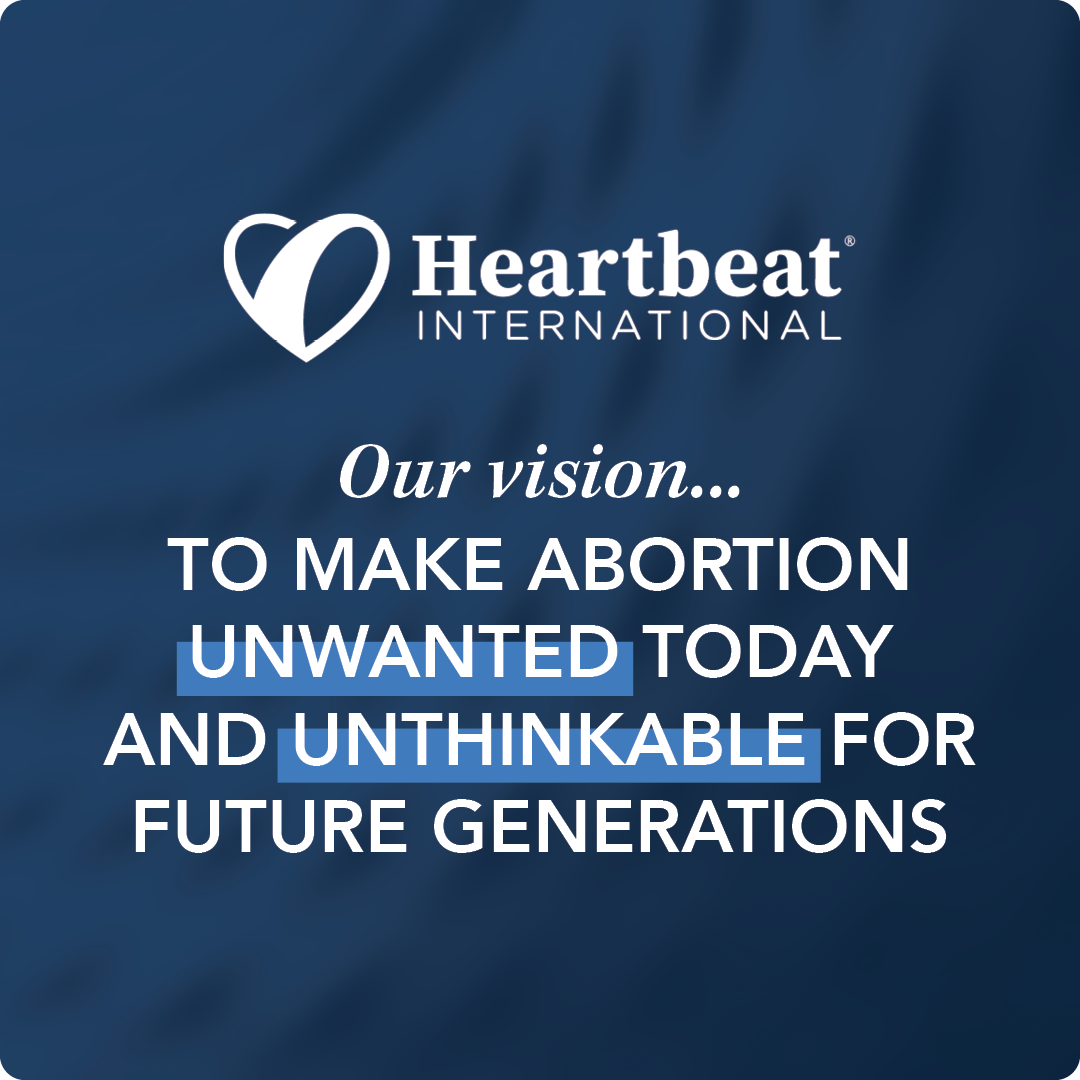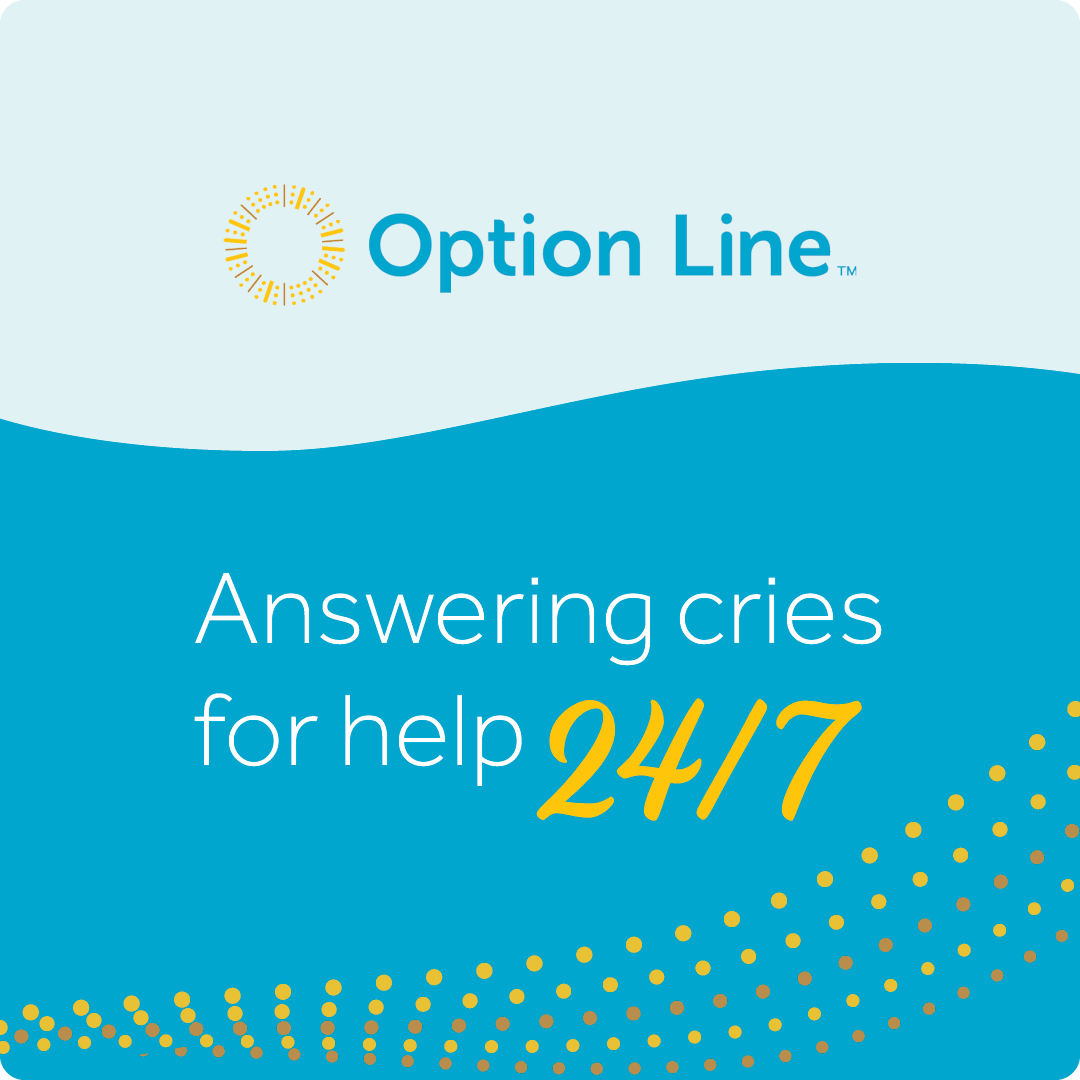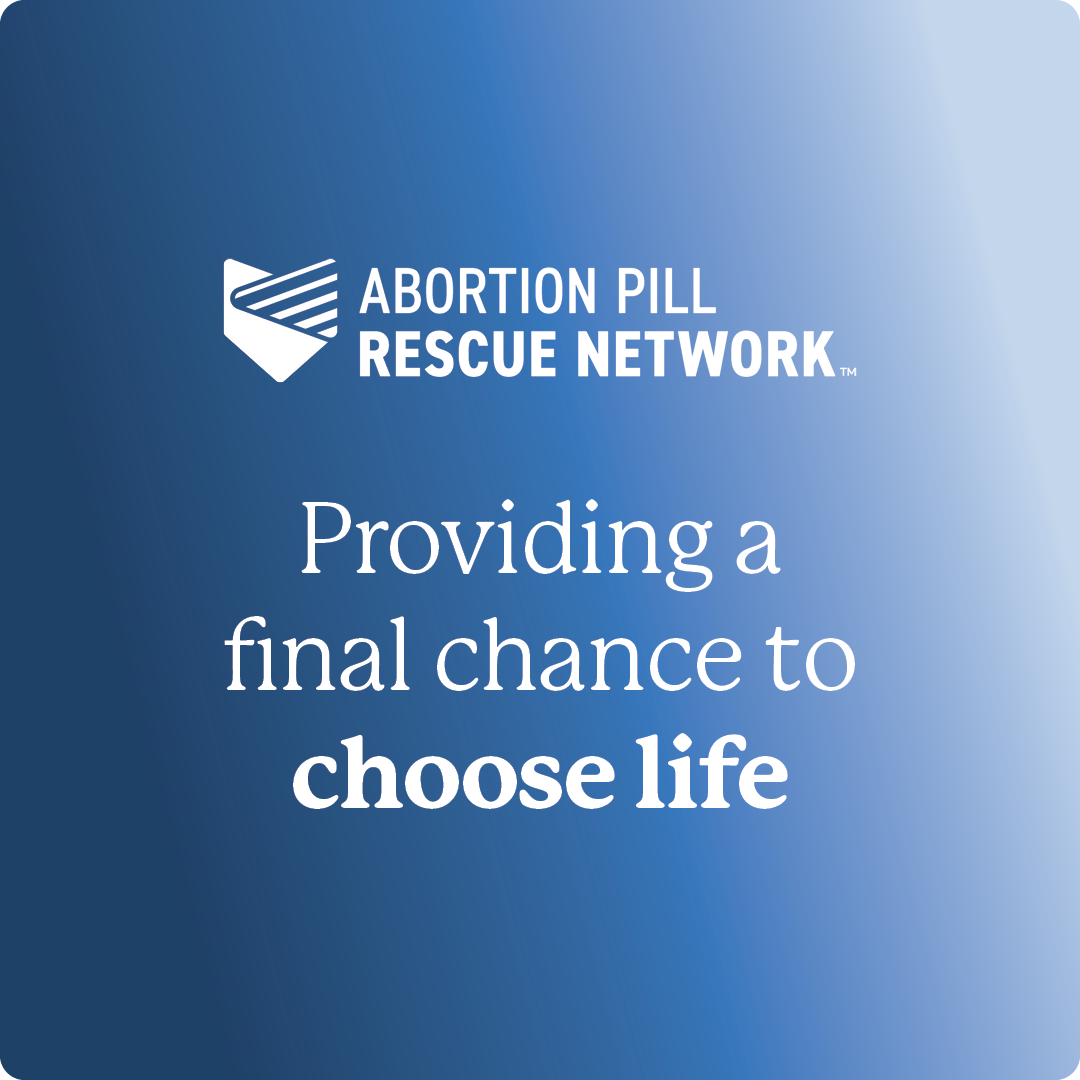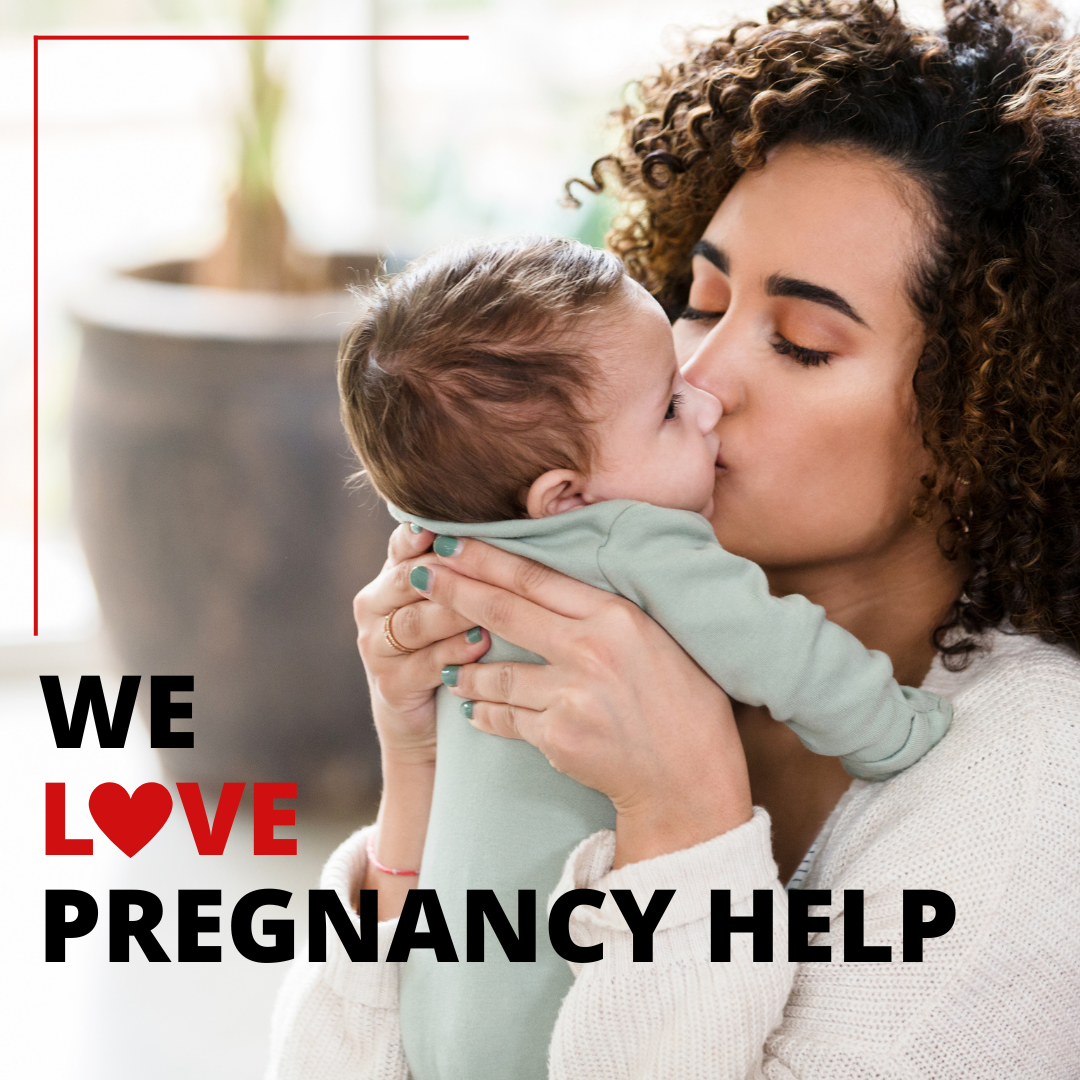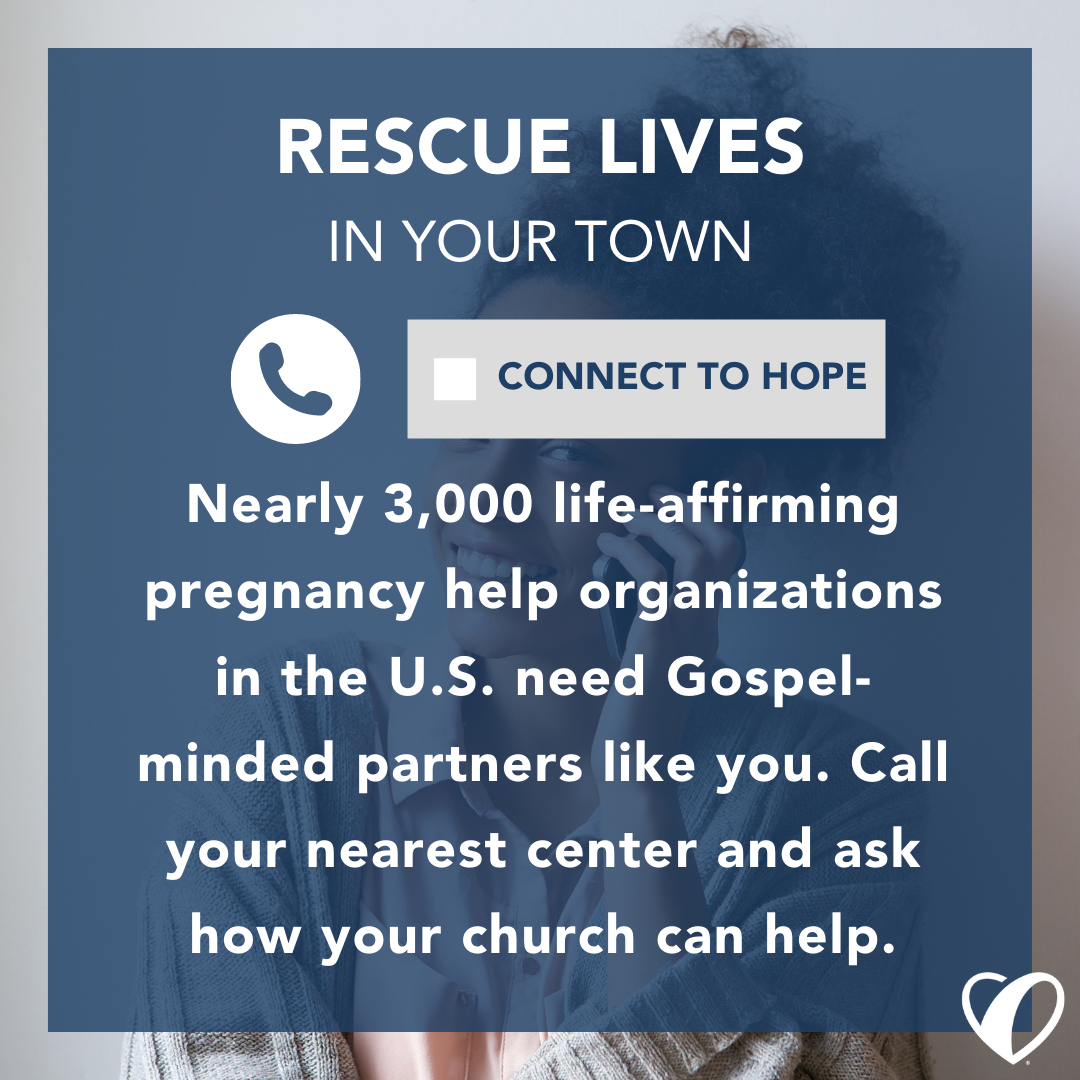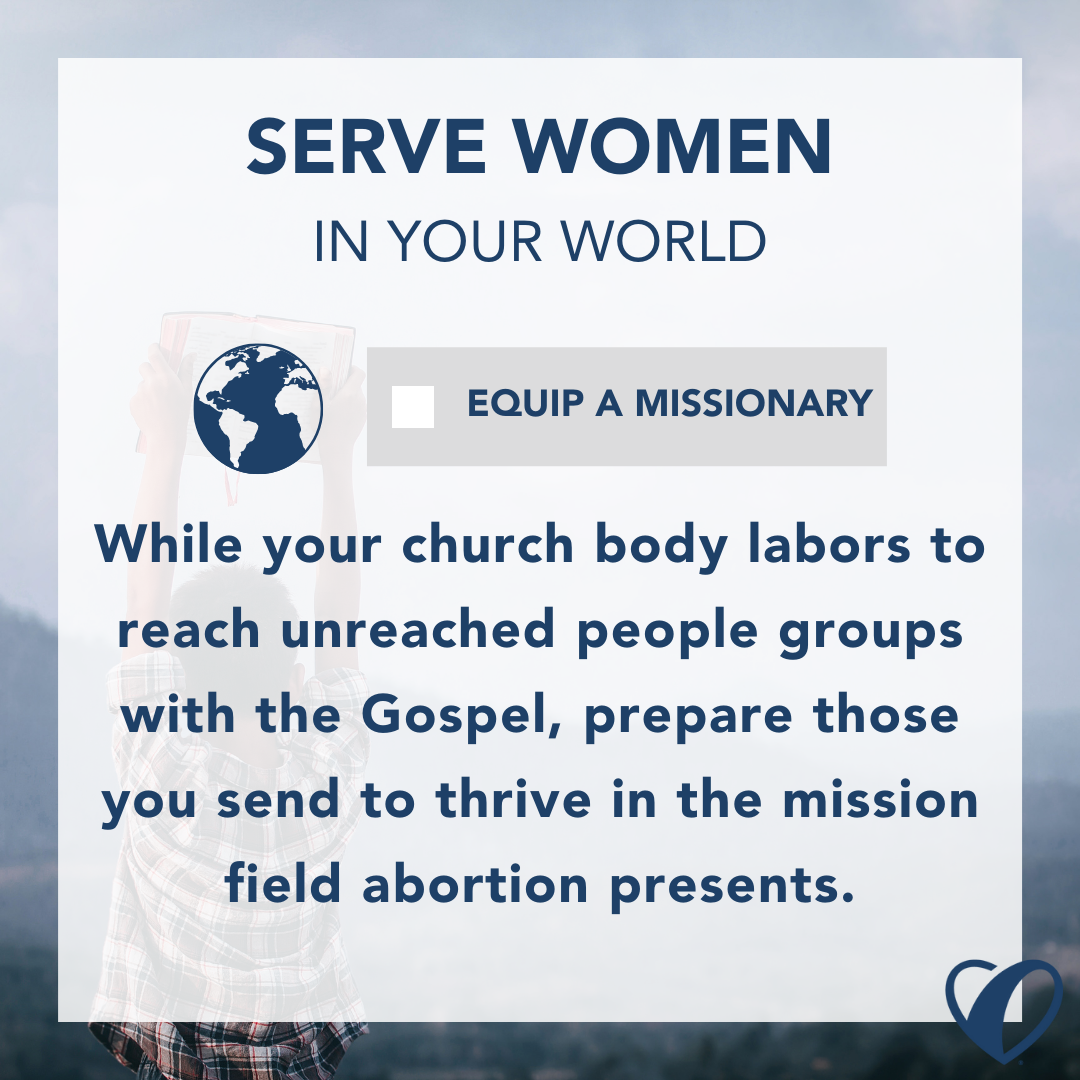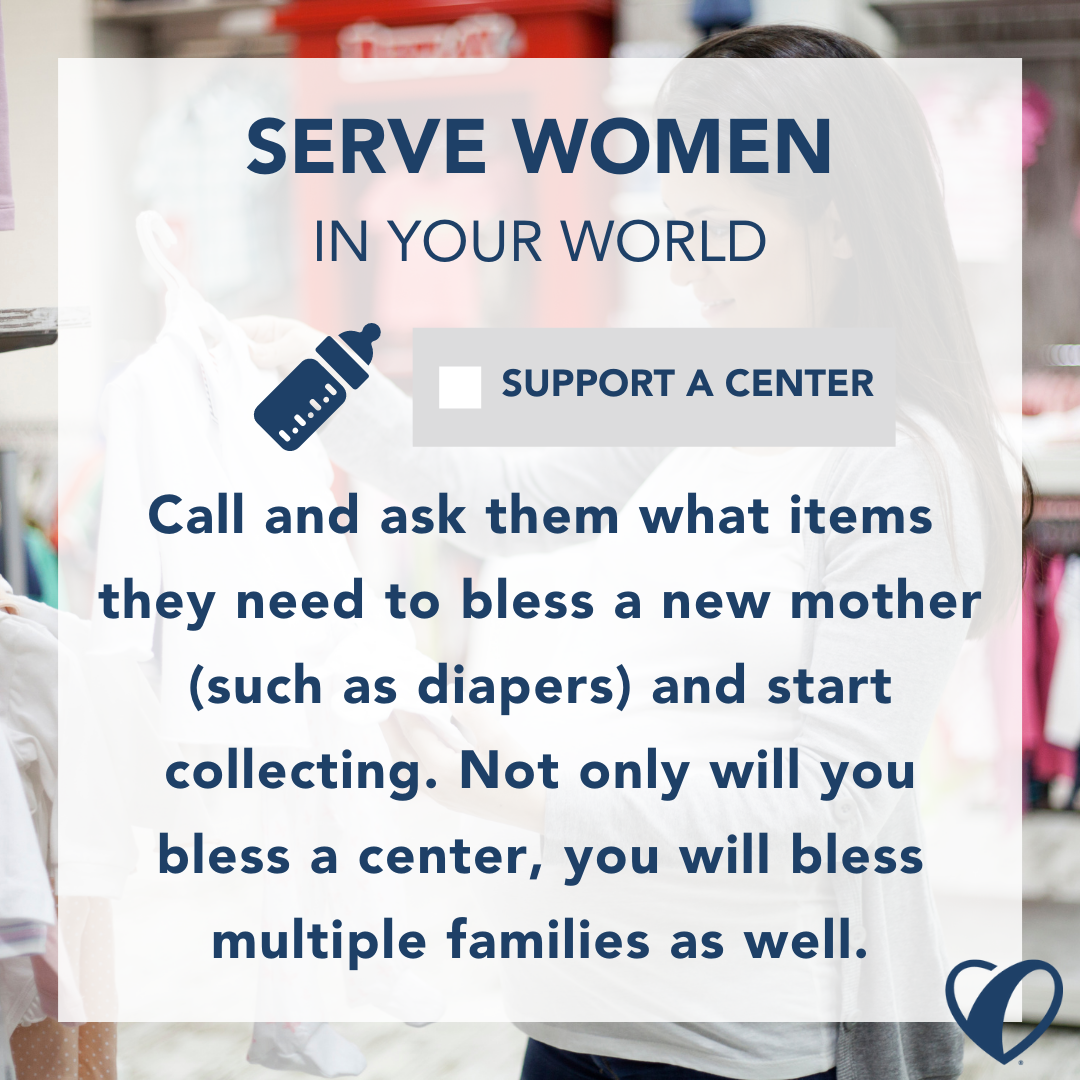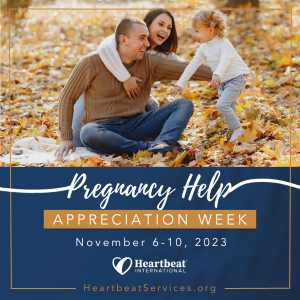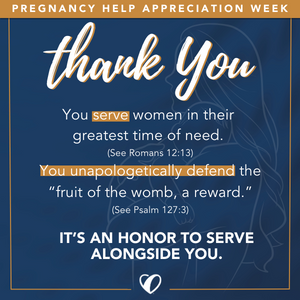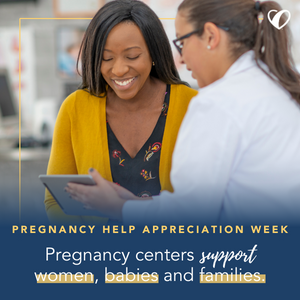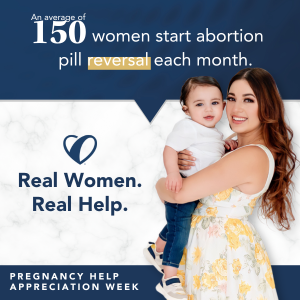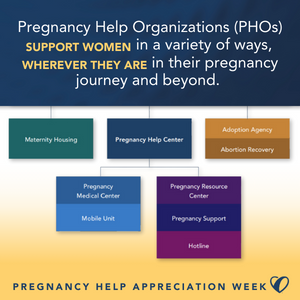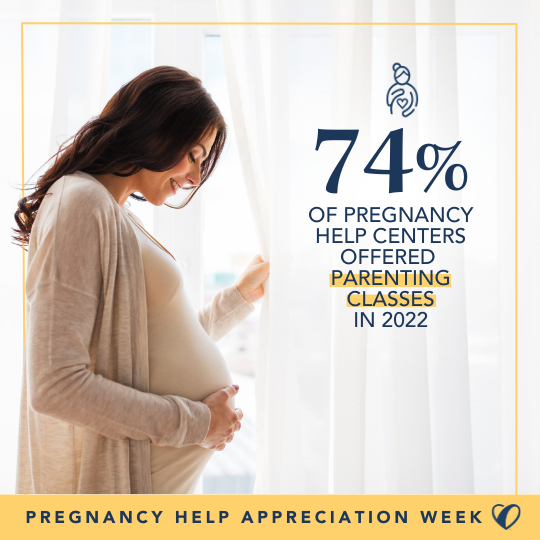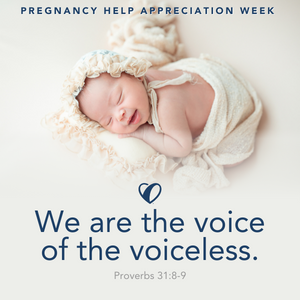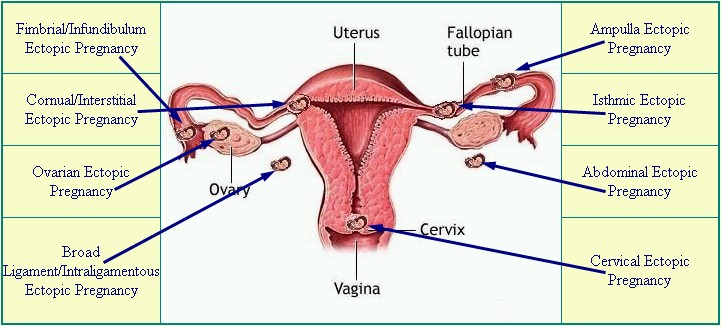Displaying items by tag: pregnancy support
Pastors Helping in a Post-Roe World

Pastors,
In this chaotic world, we thank God for your spiritual leadership and guidance.
The post-Roe opinion offers unique opportunities for us to speak about Life, offer the compassionate hand of Life, and unite with Heartbeat and our network to bring pregnancy options and support to pregnant moms. This is our time, and we can help you educate and motivate your church family!
The Power of the Pregnancy Help Movement:

Learn About Life-Affirming Pregnancy Help:
- Life Trends 2023 Report
- 9 Things You Should Know About Pregnancy Help Organizations
- Pregnancy Help News - Articles on current events
Get Involved:
- 4 Ways to Rescue Lives in Your Town
- 10 Things You Can Say and Do
- Equip your community with The Love Approach Book
More on the Pregnancy Help Movement:
- Read: The Power of Pregnancy Help: Lasting Foundations for the Movement
- Watch: The Pregnancy Help Movement in Heartbeat's 50th Year
- Watch: 50 Years of Pregnancy Help Remarks from Jor-El Godsey
Special Message from Pastor Wootton, Heartbeat Board Member
Heartbeat is here to serve you, so please reach out to This email address is being protected from spambots. You need JavaScript enabled to view it. or call 888-550-7577 to connect.
Sanctity of Human Life Resources
January is Sanctity of Human Life Month, and this year Sanctity of Human Life Sunday (SOHLS) is celebrated on Sunday, January 21, 2024.
This is a day we set aside every year to focus on the value of every human life since President Reagan proclaimed it in 1984. SOHLS has had a great impact year after year, and its impact continues post-Roe.
We want to make sure you are equipped with the resources you need when connecting with your local churches to build relationships and raise awareness for the incredible work you are doing to reach women in your community, not only on this special Sunday but all through the year.
Printables:
- Customizable Bulletin Insert (add your own logo and information!)
- 4 Ways to Rescue Lives Card
- 10 Things you can say and do to make abortion unwanted today and unthinkable for future generations
- 2023 Life Trends Report
- 9 Things You Should Know about Pregnancy Help Organizations
Resources:
- Connecting with Your Local Churches - Webinar
- Sanctity of Human Life Sunday - Webinar
- Energizing Churches to Engage in Pro-Life Work - Webinar
- Op-Ed Sample
- Church Letter Sample
- Client Success Story Sample
- Community Impact Report Samples
- Downloadable Videos from ProLifeDoc
Shareables:
Click any of the images below to download and share them on Facebook, Instagram, or Twitter using the hashtag #SOHL
Pregnancy Help Appreciation Week Videos

Robyn Chambers - Focus on the Family
Bernadette Tasy - Alliance Defending Freedom
Melissa Ohden - Abortion Survivors Network
Eric Scheidler - Pro-Life Action League
Jeanne Mancini - March for Life
Sarah Gabel Seifert - EveryLife
Kristan Hawkins - Students for Life
. . . . .
Like these? Check out videos from past Pregnancy Help Appreciation Weeks. You are loved. And the work you do is admired.

And don't forget to check out the deals of the day and share the love on social media!
Pregnancy Help Appreciation Week - November 11-15, 2024
What is Pregnancy Help Appreciation Week?
Pregnancy Help Appreciation Week was designed by Heartbeat International to honor those working within the pregnancy help movement. Through their work, women and men receive the compassionate support they need when facing a life-changing decision. They walk alongside families throughout the pregnancy and beyond, blessing them with pregnancy tests, emotional support, ultrasounds, parenting classes, and so much more at no cost.
From volunteers to executive directors, nurses to receptionists, each person working in a pregnancy help organization has been gifted with the passion to advance the culture of LIFE! And for that, we thank you!
This year's Pregnancy Help Appreciation Week is November 11-15, 2024.
How you can thank a Pregnancy Help Foot Soldier:
- Pray. The emotional energy given by those who work in the pregnancy help movement is extreme. They give of themselves daily. Pray for spiritual refreshment for those who go into the center today.
- Volunteer. Connect with your local pregnancy help organization and see what their needs are. You may have just the right skills to fill a need.
- Donate items. Call your local pregnancy help organization and ask them what items they need to bless a new mother (such as diapers or maternity clothes) and start collecting. Not only will you bless a center, you will bless multiple families as well.
- Give. Without the generous donations of those within the community, pregnancy centers would not be able to provide their services for free.
- Share the love. Share the good work of the pregnancy help community with your social networks. Don't know what to post? Like Heartbeat International on Facebook and/or Instagram and you'll find plenty to share!
If you haven't heard of Pregnancy Help Appreciation Week before, you should expect special deals, thank-you messages, and extra prayers this week.
Plus! We'll be holding a drawing at the end of the week where one lucky winner will get a fun gift basket from us at Heartbeat!
. . . . .
Shareables
Click on each image to view the full-sized version. Then, save it to your device and share on Facebook, Instagram, or tweet and show your love for the pregnancy help movement using the hashtag #ThankAPregnancyCenter
. . . . .
Friday's Deal of the Day = ALL Deals + Free Resources!
We're bringing back all the week's deals for one last hurrah! Plus, there are a few Free Resources to check out. After today, you won't see deals like this again until *next* November.
Let's recap—today only you get...
$5 Monday Deals:
Changing Clients- Shifting Focus (housing)
Discussing the Adoption Option in a Post-Roe America
Onboarding Board Members for Successful Service
Postpartum Depression
Protecting Minors from Trans On Demand Interventions
Sex Trafficking & Abortion
The Truth About Backstreet Abortion
$2 Tuesday Deals:
Opioids and Pregnancy
How to Identify and Use a Media "Hit" Piece
Surviving Christmas: Healing Resident Trauma During the Holidays
Speaking at Churches in a Post-Roe World
Healthy Boundaries in Ministry
Abortion's Long-Term Negative Impact on Men
Healing from Medication Abortion Trauma
Special Considerations of Healing from Diagnosis Abortions
50% off Wednesday Deals:
Identifying Fake Client
Advancement Bootcamp
How to Identifying and Assist Victims of Human Trafficking
75% off Thursday Deal:
From an archive of our Conference recordings of the past 5 years, get the bundle on a topic of your choice for 75% off.
*PLUS*
Free Resources
At the Heart of What it Takes to go Mobile
by Michele Chadwick, Director of Operations, ICU Mobile
 Heartbeat's Betty McDowell gave an encouraging message in her presentation at the 2014 Heartbeat International Conference, which came down to a single phrase: I see you. The God of the universe acknowledges and recognizes you. You are valid.
Heartbeat's Betty McDowell gave an encouraging message in her presentation at the 2014 Heartbeat International Conference, which came down to a single phrase: I see you. The God of the universe acknowledges and recognizes you. You are valid.
At ICU Mobile, our name and mobile ultrasound ministry (ICU, think "I See You") was born out of a call to proactively reach out to help mothers see their babies in the womb, identifying that every life is valid—sometimes for the first time in a mother's heart.
Revealing and affirming life is at the heart of all our ministries, serving a vital, essential role in life-affirming work. When a pregnancy center provides medical ultrasound imaging, its representatives affirm that the act of visibly revealing life is essential to the ability to fully inform a pregnant mother of the life she carries.
Going mobile medically brings this vital life-imaging service to mothers outside of the center. At ICU Mobile, we believe that at the heart of an accomplished mobile medical clinic, as in the pregnancy center, is a commitment to offer services with faith, wisdom, and experience as our guide. We are committed to standing strongly on the strategic operating principle of extending the reach of our services for women into the –community—in the community of others.
A mobile medical clinic, when operating well, is a tool with the capability of joining a community together under the umbrella of life, drawing pregnancy resource centers together with the church and other community and organizational resources, in support of each other in the service of women.
Key factors that help encourage this united front include neutral branding, a process to provide a full continuum of care for the client, operating from each other's strengths through shared service models, and encouraging good stewardship through shared resources.
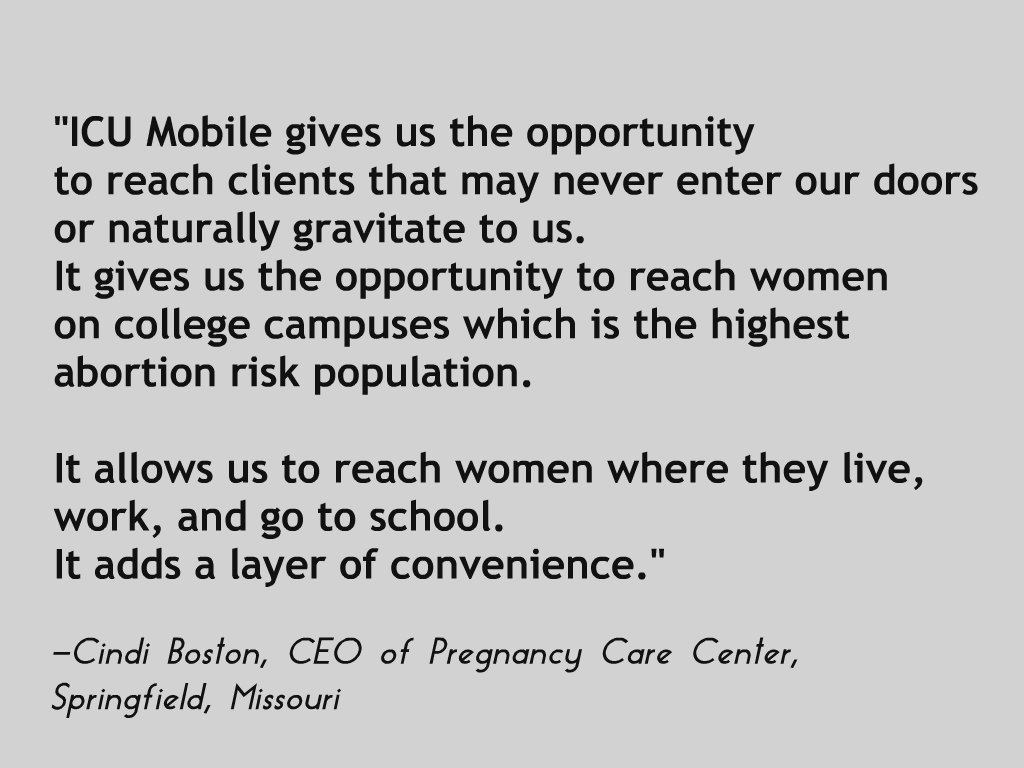 Pregnancy help expert Kirk Walden, in his book, "The Wall" (and who also presented at the Heartbeat Conference!) makes the case for uniting the community to serve women. He asks the question, "What happens if we're the first choice?" The "we" in this question is key. The "we" is all of us working together to be a mother's first choice. A mobile medical clinic can be the "vehicle" (no pun intended) for building this unity.
Pregnancy help expert Kirk Walden, in his book, "The Wall" (and who also presented at the Heartbeat Conference!) makes the case for uniting the community to serve women. He asks the question, "What happens if we're the first choice?" The "we" in this question is key. The "we" is all of us working together to be a mother's first choice. A mobile medical clinic can be the "vehicle" (no pun intended) for building this unity.
Mobile operations in joining others together can become one of the most effective ways to reach abortion-minded women. Mobile services provide an effective way to expand your reach without having to build a satellite office, expand internally, or require more space, and it allows a center the flexibility to move to locations to adjust to demographic changes and population shifts.
Further, going mobile avoids the issue of no-show appointments at your center, as well as helping to balance the number of clients seeking social support services and those seeking medical services. Going mobile alleviates the expense of renovation or expansion of services in your center, while providing opportunities to build network supports with other pregnancy help organizations in the community surrounding the center.
Each of these considerations factor into the thought process of going mobile in a community.
When considering the possibility of adding a mobile medical clinic, it is first important—as with adding any medical service—to recognize the seriousness of the endeavor and requires the highest level of commitment to a professional quality medical experience for the client, as it is visible and the first contact with a mother.
Equally important for an organization to note is that going mobile is a unique approach that influences how a center operates, affecting the procedural processes that are needed to accommodate a moving center. A board, leaders, staff, and the connected community must pray and seek wisdom and recognition of the call to serve in this mission capacity.
We recommend you seek others who already operate a mobile medical clinic to learn about effective methods of operation, strategies that work, and the significance of working together in community to serve. It is God who builds these mobile communities, so it will be God who lays the possibility and provides the opportunity for success.
As Kirk Walden asked at the Heartbeat Conference, "What can we do to join hands?" Mobile done in community with others will join hands, and as we are blessed to say at ICU Mobile, it joins hands for little feet.
Here are some practical questions and steps toward adding mobile services:
- Do you have a need to reach women in multiple locations who would benefit from the ability to change locations daily?
- Is your board and staff ready to take a logistically challenging step that would involve a comprehensive team effort?
- Contact ICU mobile and ask questions that would be important for you to consider when incorporating a new program.
- Once the board has the buy-in, meet with top donors to survey their interest in the project.
- Investigate friends and "influencers" on local college campuses to assess their interest.
Power Up This Summer With Heartbeat, NMHC
 Thinking of conserving power this summer?
Thinking of conserving power this summer?
Well maybe it’s time to think again.
This summer, Heartbeat International is partnering with the National Maternity Housing Coalition to pilot six highly interactive strategy sessions we like to call “Power Conversations.”
Short, sweet, and packing a punch, these 30-minute conversations are a perfect environment for maternity housing leaders at all stages of development and experience.
Here’s what to expect from Power Conversations this summer:
- July 10: Smooth Departures
- July 17: Intake Methods
- July 24: Outbreak Prevention
- July 31: Difficult Departures
- Aug 7: Transportation Norms
- Aug 14: Chore Systems
All sessions start at 2 p.m. (Eastern Standard Time)
Call-in Number: (559) 726-1300
Participant Access Code: 705126
Baby Daddies and the Treasure Hunt
by Mary Peterson, Housing Specialist
 Somewhere along the line several years ago, moms started using the title “Baby Daddy” to refer to the man they had been involved with when they became pregnant.
Somewhere along the line several years ago, moms started using the title “Baby Daddy” to refer to the man they had been involved with when they became pregnant.
“The ‘baby daddy’ went with me to doctor today.”
“Him? Nah, we’re not dating—he’s the ‘baby daddy.’”
When it was still a new term, I remember hearing it a few times. Soon after, I saw it used in a pop magazine and realized that the term wasn’t just a passing phase. A sign of our times, the phrase “baby daddy” has come to be commonly understood as referring to a specific situation and calling to mind attributes of a specific kind of man.
It is this man who is often connected to the women of our homes.
More and more, I hear pregnancy help organizations reflect on how to better engage men. For maternity homes, this question is framed as, “How do we help ‘baby daddies’ grow into fathers?”
In the maternity home setting, this can raise the question, “If they are choosing to parent, how do we help single mothers—fatherless families—to invite the right type of men into their lives and raise children in the context of authentic masculinity?”
It’s a difficult tension—wanting to honor the role a man plays as a father and simultaneously, wishing a new mom would finally sever a destructive attachment to a man who is just using her, abusive, manipulative, or in and out of jail.
Hope Mansion in Cedar Hill, Texas, led by Angie Hammond, has developed an interesting program to address this tension.
The program, still under development, uses communication with the women as the leverage point. In order to be able to spend time with the mother residing in the maternity home, the man must walk through a variety of steps in a process they refer to as a “Treasure Hunt.”
One of the first steps is to require a formal letter from the “Baby Daddy,” in which he must explain his intentions regarding the resident in the Home and the baby. Once the Home receives the letter, he is provided with the workbook, “The Me I See,” from Loving and Caring. Next, he makes a request to meet with the House Dad, giving the opportunity to engage in a deliberate conversation.
Calling upon his masculine drive to take action, the intent is for the man to realize the mother of his child truly is a treasure—a woman worthy of his sacrifice. If he fails to take the simple steps required, then he is not allowed contact, and the house parents encourage the woman to think deeply about what it means that he was unwilling to make such small gestures in order to stay in her life.
“We are pleased by the level of conversation that has opened up,” Angie says. “The Treasure Hunt puts the initiative and the consequence into the hands of the man. And thus, provides an opportunity for real growth.”
Has your home, like Hope Mansion, discovered effective strategies for engaging men and teaching fatherhood? We would love to hear (and share!) more.
Please don’t hesitate to contact me at This email address is being protected from spambots. You need JavaScript enabled to view it. or post to the National Maternity Housing Coalition Facebook page. Who knows, maybe this is the beginning of a longer conversation we can have via conference call or through the Heartbeat Academy. Let’s learn from one another!
For more information on Hope Mansion, visit: https://www.hopemansion.com.
Shelf Help: Tiny Blue Lines
 Endorsed by Heartbeat International President Peggy Hartshorn, Tiny Blue Lines is a young mother's story that started the day she saw two tiny blue lines after taking a pregnancy test.
Endorsed by Heartbeat International President Peggy Hartshorn, Tiny Blue Lines is a young mother's story that started the day she saw two tiny blue lines after taking a pregnancy test.
"Tiny Blue Lines is a triumph of faith and courage, and a treasury of resources for all who choose life," Peggy says in her endorsement.
The book's author, Chaunie Marie Brusie is a strong Christian pro-life advocate whose personal journey through pregnancy and young motherhood as a college student is mixed with other, similar stories of courageous women who took on the challenge and difficulties of welcoming new life.
To find out more, visit Tiny Blue Lines at TinyBlueLines.com
6 Effective Ways to Mentor a Teen Parent
 |
With the help of our local pregnancy center, I established a list of what was most important to keep in mind when coming alongside a teen parent.
Where do you start this process? Once she is committed to life, begin to expose her to six areas that may be unfamiliar to most teenagers:
- Social Services (with a twist)
- Spiritual Encouragement
- Education Options
- Community Awareness
- Care and Concern
- Support Emphasis
Wrapping around a teen parent will involve guiding wisdom, generous amounts of spiritual insight, as well as an understanding of the vast array of social services and guidance in community awareness… Oh, and a lot of care.
The hope is to address and meet this young mother’s needs by utilizing all these areas of service that already exist around her.
Social Services
Help mom jump through the hoops of social services. Bring the social services to her. Monthly group meetings highlighting local, state, and federal resources benefit your clients, as well as bringing a vast array of networking opportunities your center’s way. Imagine for a moment you’re a teenager, trying to sort through medical papers and legal jargon. Help mom see the benefits to these services by empowering her to make choices. Start with identifying the services available to her. Sort through them, and piece together those with the best-suited benefits.
If your center offers a packet of resources available in your area, that’s a great start… But, what if you take it one step further?
What if you offer to go through that packet of information with this client? What if you arrange a follow-up, educational, session to equip her with all the information she needs?
The Twist… Give Back!
The twist to Social Services is training your clients to give back. When we eat too much, we get full. Too much candy causes tooth decay and tummy aches. Ask any 5-year-old after Halloween. Too much of anything generally leads to trouble.
Giving back is a powerful teaching tool. If we dismiss giving back as an educational-teaching tool, we completely miss out on the blessing that comes with giving. There is growth and maturity that transpires in giving. There is something powerful in saying, "I gave to someone else. I was useful, and I helped."
We only need to remember a time when the Lord used us to help another, and how satisfying it was to have been used. The principle of giving transcends understanding. Teach your teen clients to give back now and they will reap the benefits.
Spiritual Encouragement
To mentor someone means to come alongside them as a wise, trusted guide. How do you mentor a teen mom or dad? Gently, by the hand. You cannot force a teenager to do anything. A shepherd (or a mentor) diligently looks after his and quickly responds to any lost lambs. He gently curbs them back to the flock and leads them (Matthew 18:10-14).
Ultimately, we must remember your client is a teenager, a child in her own right. She does not need our judgment. She needs our love and support. Teen parents need to know they can be forgiven. They may or may not know the acts they have committed were sinful, but they will most likely feel the shame others place upon them.
Teens will not listen to your words with as much attention as they will watch your actions. Moving in love towards mom will motivate change quicker than mere words. If your actions toward here are loving, she will not expect you to be "up" on the latest texting fad or care that you don’t understand all the functions on your Smartphone.
Concern can be felt when you enter the room. How is your presence perceived? How would she feel when you entered the room? Would she feel judgment or embrace?
Educational Options
Your teen parent will need help exploring her educational options. Make your center staff and volunteers aware of local high school programs. A director who’s savvy in these areas will be able to make options available for clients.
Contact your local High School and request a collaboration meeting, looking for various networking opportunity such a meeting would present. Initially, there may not be a warm reception to this idea, depending on the department's worldview. But go into this meeting prepared, with your agenda in hand.
What questions do teen parents ask regarding education? Are there established plans in place for teen parents? What educational options do teen dads have, if any? How can both entities—the school and your center—work together for the betterment of the teens?
Are there resources you can provide, or ways you can both partner together to encourage academic success during the teen parents’ high school and college years?
Even if these meetings are not pleasant, keep in mind that an educational advocate is needed for teens in several arenas. Your center represents that for teen parents!
Are there other resources centers can provide for additional support? Creatively structure a child-free study hall time, manned with knowledgeable volunteers who are willing to assist with homework. You can also consider dedicating one night a week to a homework-help hotline for teen parents. Reaching out in the educational realm will broaden your scope, and has the potential to draw more teens from the community.
Community Awareness
I am currently working with a creative bunch to lead a single mom's ministry within our church. Our reoccurring discussion is, "How do we advertise this group and offer support to the community and families at-large without isolating or offending single-parent households?"
We want to be sensitive so they do not feel put forth for judgment. Our goal is to wrap love around them and provide them with unique services. I am learning a great deal about my approach to these women through a friend who is also a single parent. Single moms do not necessarily choose this option. It's a lot of tough work. Many are alone, making hope out of less-than-hopeful situations.
As a church, we do not want to error in our approach to love them. Since I am not a single parent, it takes effort on my part to more accurately relate to and understand single parents. I must educate myself through resources and other women. That's exactly it! Awareness does take work!
Are you and your center willing to exert yourselves to really get to know these young moms? Are you willing to walk in her shoes in full view of both Christian and Non-Christian communities made up of judges who focus only on her sin and mistakes?
Are you willing to advocate for them?
One of the teenage moms I interviewed expressed through tears the shame and judgment she experienced firsthand from her school nurse. The hurtful words expressed were written across this young woman's face and proven in her tears.
How does your center promote a healthy outlook for teen parents in your community? First, it begin with you, your staff, and volunteers by renewing your commitment to teen parents. Activate this commitment by hosting focused annual workshops and trainings on community awareness for local churches, the community at-large (i.e., local public libraries), as well as local school boards.
Continual training and awareness-raising actively pursues the hearts of these young women and educate others on ways to support them. Providing trainings for the community and for churches exposes the teen parents' struggles and the reality of these situations. It may also be useful to attract donors for your cause.
Go with the hearts of these young mothers in mind, and anxiously wait upon the Lord to provide wisdom, acceptance, love, and the potential of new funding.
Care & Concern
View the development of care and concern as a flower. Every flower starts with a seed. When properly planted, growth is likely to occur.
Fostering care and concern starts the moment the client enters your building. Offer the teen parent support, resources, and supplies. Pray this seedling germinates into deep roots once authentic care, legitimate concern, and plenty of prayer permeate her life.
When mom knows you actually care about her, the relationship you offer can grow. Research has a lot to say about the client/volunteer relationship (or whoever works closest to her), suggesting the client/volunteer relationship can be more important than anything discussed. Use your relationship with mom as a training model. Chances are, she may have poor interpersonal skills and her relationships may need major repairs. The client/volunteer bond can be used as a guide for her to cultivate healthier friendships with others.
Growth brings change, and we know that true change only comes from the Holy Spirit. Pray she fixes her mind upon Him (Hebrews 12:2), and He changes old mindsets (Ephesians 4:20-24). He can make all things new!
Support Emphasis
Offer to help put a support plan in place. Who are her current support people? These are the dominant figures involved in her life. Creating a support plan allows you to know the valuable people in her life. It also gives her the opportunity to establish a list of people to access. Good or bad, this list will quickly tell you a lot about her current status and situation.
Does she have people who support her? What roles do these people serve? Where is she lacking in support? What needs still exist? A support plan provides her with needed resources, including people resources.
Bringing it Home
When mentoring teen parents, take an honest evaluation of the services your center currently provides. Consider restructuring or increasing your existing services to fully experience success. Think outside the box when given the opportunity to do life with teens.
All the while, keep in mind the truth that our God is not limited by your resources or skills. He will be blessed as you work for "the least of these" (Matthew 25:40). Thank you for serving!
Rebecca Dawson is author of "Help! I'm a Mom-To-Be!", which gives a comprehensive view for creating a support plan and offers greater detail and application on these discussed topics.
Get up to Speed on Ectopic Pregnancies
|
Diagram from EctopicPregnancyFoundation.org |
By Susan Dammann, RN, Medical Specialist
Ectopic pregnancies occur in a range of 1 in 40 to 1 in 100 pregnancies. An ectopic pregnancy is any pregnancy that implants somewhere outside of the uterus, most often occurring in one of the fallopian tubes, which is also known as a tubal pregnancy. Other locations for an ectopic pregnancy include the ovary, the cervix, and the abdominal cavity.
Ectopic pregnancies are life-threatening for the mother, and the baby (embryo) cannot survive. Ectopic pregnancies may occur with or without the use of birth control.
Though rare when considered with the overall number of U.S. pregnancies, ectopic pregnancies still occur at a rate of 100,000 per year, according to the Center for Disease Control. The CDC also reports the life-threatening nature of an ectopic pregnancy for a mother: "Ectopic pregnancies are the leading cause of pregnancy related deaths in the first trimester and account for 9% of all pregnancy related deaths in the country."
Causes
An ectopic pregnancy can result from any condition blocking or slowing the movement of the embryo through the fallopian tube, where it then becomes lodged. The cause, sometimes unknown in an individual case, may include any of the following:
- Tubal damage resulting from sexually transmitted infections
- Inflamed, damaged or misshapen fallopian tube
- Hormonal imbalances
- Abnormal fetal development
- Complications/scarring after a ruptured appendix
- Endometriosis
- A previous ectopic pregnancy
- Scarring from past infections or surgery of the female organs
- Illicit drug use (“An alarming increase in ectopic pregnancy-related deaths among Florida women is likely caused by illicit drug use and delays in seeking medical care…”)
Risk Factors
- Having had many sexual partners
- Surgery to reverse a tubal ligation
- IUD in place
- In vitro fertilization
- Over 35 years of age
- Some infertility treatments
- Tubal ligation (more likely 2 or more years after the procedure)
Symptoms
Initially, an ectopic pregnancy may not cause any symptoms outside of those of a normal pregnancy. A pregnancy test will read positive, but will likely be accompanied by the following symptoms:
- Abnormal vaginal bleeding—heavy vaginal bleeding is not likely unless the ectopic pregnancy is in the cervix
- Pain in the lower belly or pelvic area
- No period
- Low back pain
- Cramping on one side of the pelvis
If the areas around the ectopic pregnancy rupture and bleed, symptoms may worsen and include:
- Low blood pressure
- Pain in the shoulder area, due to blood leaking from the fallopian tube
- Urge to have a bowel movement, due to blood leaking from the fallopian tube and pooling
- Severe, sharp, and sudden pain in the lower abdomen
- Fainting or feeling faint
Complications
- Unless treated, a ruptured fallopian tube may be life-threatening
- Shock
- Infertility
Diagnosis
If an ectopic pregnancy is suspected, the physician may do a pelvic exam to check for pain. Tenderness or a mass in the fallopian tube or ovary may be an indicator. Blood tests and vaginal ultrasound exam help confirm the diagnosis, as does checking hCG blood levels over 1 to 2 days.
[Related—Transvaginal Sonogram: Is it Necessary in Your Center?]
Ectopic pregnancy may occur after tubal ligation, even more so if the woman was sterilized before 30 years of age. One study found these women were twice as likely to have a subsequent ectopic pregnancy as those women who undergo tubual ligation after the age of 30. It should never be assumed that a woman’s history of tubal ligation automatically rules out the possibility of an ectopic pregnancy.
Treatment
In order to prevent the loss of a mother’s life in addition to the loss of her embryo, intervention is required. The pregnancy cannot continue to full-term. If the ectopic pregnancy is diagnosed before symptoms occur, treatment may consist of an injection of methotrexate to stop cell growth. Ectopic pregnancies can be removed through laparoscopic surgery. If the fallopian tube is damaged, it may need to be removed as well.
Emergency medical attention is required if the fallopian tube has ruptured and heavy bleeding is occurring. Emergency surgery (laparotomy) may be required to stop the blood loss, as well as the termination of the pregnancy and possibly removal of the fallopian tube. Because the rupture can lead to shock, the following may be necessary:
- Blood transfusion
- Intravenous fluids
- Oxygen
- Trendelenberg position
- Added warmth
Prognosis
While some women do not conceive subsequent to an ectopic pregnancy, approximately one-third do experience a later pregnancy. Of this one-third who do become pregnant following an ectopic pregnancy, approximately one-third will have a repeat ectopic pregnancy.
Prevention
The best means of avoiding a tubal pregnancy is to avoid anything that would cause infection, or scarring of the fallopian tubes. Early diagnosis and treatment of all STD/STIs is critical. There are, however, no preventative measures to avoid ectopic pregnancy occurring outside the fallopian tubes.
Patient Instruction Sheet
This information is critical for pregnancy center staff to know. With every client who comes in our center with a positive pregnancy test we must be aware that she could potentially have an ectopic pregnancy. Therefore, it is recommended every center have a policy and procedure for advising clients of the signs and symptoms of an ectopic pregnancy.
This could be as simple as giving your client a sheet of instructions and information listing the signs and symptoms of an ectopic pregnancy, along with instruction to contact a health professional immediately if she experiences any of these symptoms.
Sources:
1. http://www.mayoclinic.com/health/ectopic-pregnancy/DS00622
2. http://www.nlm.nih.gov/medlineplus/ency/article/000895.htm
3. http://www.ncbi.nlm.nih.gov/pubmedhealth/PMH0001897/
Tubal pregnancy; Cervical pregnancy; Tubal ligation-ectopic pregnancy
4. CDC Fact Sheet: Ectopic Pregnancy Risk after Tubal Sterilization
[CDC Reproductive Health Information Source, 7/04 http://pregnancy.about.com/cs/ectopicpregnancy/l/bltubalfacts.htm]
5. http://health.usnews.com/health-news/news/articles/2012/02/16/illicit-drug-use-may-be-driving-rise-in-ectopic-pregnancies-in-florida

